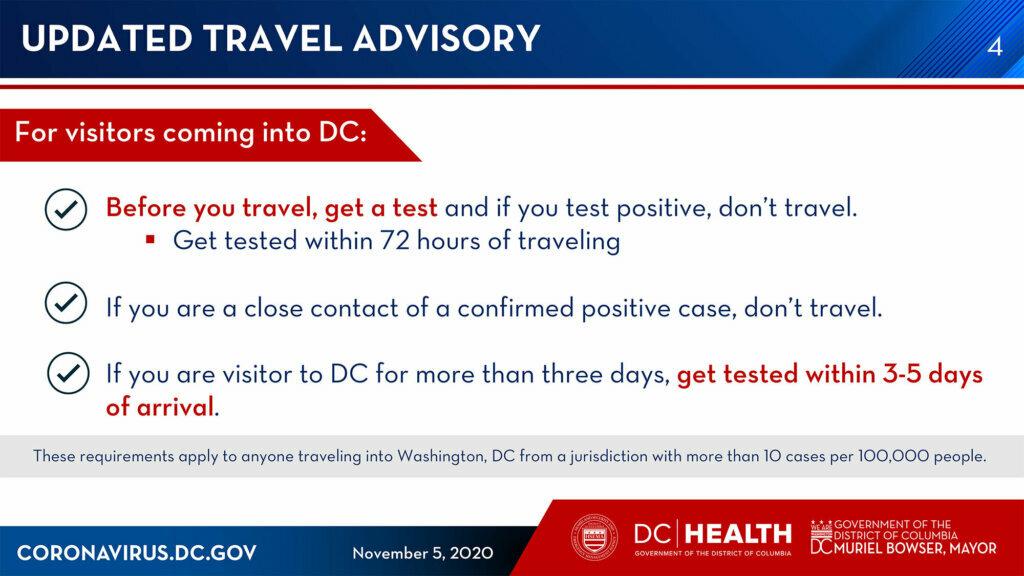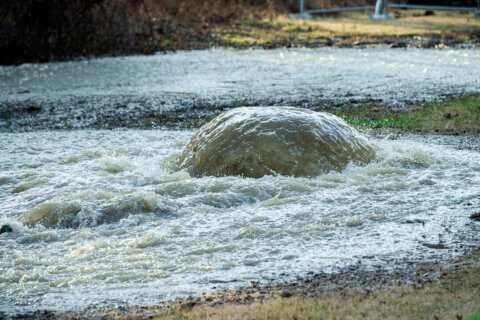D.C.’s new coronavirus travel restrictions started Monday, just ahead of the holiday travel season and as daily COVID-19 case numbers are rising across the U.S.
Visitors coming to D.C. from a state classified as high-risk will be required to take a COVID-19 test and receive a negative result within 72 hours before traveling. They will be asked to take another test locally if they plan on staying here more than three days.
D.C. residents who have traveled to a high-risk state are being asked to limit daily activities and self-monitor for 14 days.
“We want all D.C. residents to heed this advisory, as well as people visiting the District,” Mayor Muriel Bowser said Monday.
“We have to make sure that we spread the word far and wide that this is our expectation.”
Sunday marked the fifth day where coronavirus cases topped 100,000, according to data from Johns Hopkins University.
The new system replaces the one in place since July, which required visitors from hot-spot states to quarantine for 14 days upon arrival.
Currently, there are 42 states on the high-risk list. Like the previous requirement, people traveling to D.C. from Virginia and Maryland are exempt.
Bowser acknowledged Thursday that the quarantine system, which was entirely voluntary, was probably being violated by many visitors.
Under the new restrictions, private institutions, such as hotels, universities, employers and houses of worship, are permitted to demand proof of negative COVID-19 tests before allowing people to enter, but Bowser said the government won’t be involved in such enforcement.
“Nobody is going to be asking you at the airport, or on bridges or roads or at the train station, to show your papers,” Bowser said.
Exceptions will be made for family emergencies and funerals, according to the mayor’s situational update on Nov. 5.
City residents returning to the District from anywhere other than Virginia, Maryland or one of D.C.’s low-risk states will need to limit daily activities and self-monitor for 14 days after they get back, or to limit their activities until they get tested within 72 hours after they return.
WTOP’s Will Vitka contributed to this report.









